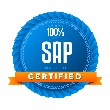The credit gap for MSMEs in India looms large, estimated at a staggering ₹20 – 25 trillion. Shockingly, MSMEs currently have very limited access to formal credit channels. This scarcity is deeply rooted in systemic challenges such as short-tenure loans, outdated risk assessment methodologies, difficulty in collection, and the high cost associated with collections.
The urgency for change
In the pursuit of fostering deeper financial inclusion for Micro, Small, and Medium Enterprises (MSMEs), it is imperative for us to shift the way we approach risk assessment and address the persistent credit gap. The first step in this journey is recognising that data holds the key to unlocking greater access for MSMEs in the large credit landscape.
Rethink risk assessment, from collateral to information-based underwriting.
Starting a small business is challenging, especially in securing funding due to collateral-based lending. With the need for 10 crore rupees to kickstart a promising business idea and only a 3 crore rupees home as collateral, many aspiring entrepreneurs face difficulty obtaining the necessary funds, underscoring the limitations of traditional lending practices. Although banks lack confidence in small businesses because of their limited credit worthiness, the same businesses need credit the most, to evolve to be successful. This paradox emphasizes the challenge for small businesses to access credit, hindering their growth potential despite their crucial need for financial support.
To bridge this credit gap effectively, a crucial aspect to reconsider is the efficacy of prevailing risk assessment practices. The need of the hour is to shift from collateral-based underwriting to information- based underwriting. Developing more powerful underwriting engines is imperative to capitalise on the wealth of MSME data that is available. Such engines should not only evaluate structured financial data but also consider unstructured data.
Rubix Data Sciences operates an award-winning risk assessment and monitoring platform that leverages structured and unstructured data from 120+ sources in its credit risk assessment models. The Rubix ARMS TM platform generates risk scores for businesses (including proprietorships and partnerships) on the basis of which trade credit and bank credit decisions can be taken. The focus of the platform is to gather data from non-traditional sources, besides the usual structured data, analyse this on the fly, and provide risk scores, credit limit recommendations, and detailed information about businesses. Here’s what you can do with Rubix to assess the risk smartly.
1. Listen to employee feedback to shape credit decisions.
In the shift towards data-based underwriting, alternative data sources play a pivotal role. By going beyond traditional information, these sources when combined with data analytics, can provide valuable inputs in understanding the credit profiles of MSMEs. An illustrative example of this approach is the use of employee feedback platforms. By considering unconventional data such as employee feedback and scores, lenders gain unique insights into the risk profile of an enterprise. For instance, the analysis of employee ratings can unveil potential risks, including subtle indicators like salary delays, gaps in provident fund payouts or other
signs of workforce discontent. By scrutinizing employee feedback, lenders gain insights into the general liquidity position of the organization, and its ethics and values. An ethical organization is generally fair to all stakeholders, including employees, whereas an unethical organization will seek to cut corners with respect to its employee commitments. If an organization is unethical to its employees, it is likely to extend this behaviour to its creditors as well. As the above example illustrates how alternative data helps provide a holistic perspective about an MSME’s creditworthiness.
2. Fine-tune credit levels for operational excellence
In the domain of trade credit, data analytics helps create targeted credit solutions for MSMEs. Different sectors have different trade cycles; a one-size-fit-all risk analytics model does not work well. By developing different risk analytics models for different sectors, the risk of businesses in different sectors and at different points in the distribution network and supply chain can be assessed better.
Recognizing the inherent diversity in trade cycles across sectors, consider this scenario: when a company, initially punctual with its payments, begins to exhibit delays, it serves as an early indicator. However, it’s not always prudent to abruptly shut down credit. Doing so could risk losing any outstanding payments entirely. Instead of an outright cessation of credit, they may opt to gradually reduce exposure. This nuanced strategy ensures a balance between managing risk and maintaining a viable business relationship.
In addition to informing the customer on the supplier’s liquidity standing, data analytics help predict at which point in the transaction the MSME will require credit. This helps accelerate the credit evaluation and sanction process, making timely trade credit available when it is required and contribute to bridging the credit gap.
3. Opt for alternate, smarter platforms to facilitate short -term working capital for your vendors and dealers
In essence, the confluence of alternative data, analytics, and technology can play a pivotal role in giving access to affordable & timely trade credit flow to MSMEs. This synergy not only holds the potential to transform traditional lending landscapes but, also signifies a pivotal step toward fostering economic growth and resilience in the dynamic landscape of Micro, Small, and Medium Enterprises (MSMEs). Vayana’s Integrated Cashflow, Credit, and Analytical Solution (VICCAS), is one such product that brings timely and affordable credit to MSMEs. With easy follow-ups, real-time cash flow visibility, timely & affordable trade credit, and seamless digital invoice generations, VICCAS is the all-encompassing financial ally for small businesses.
For growing small businesses, improving credit access is pivotal for fostering growth and resilience. Embracing innovative approaches like information-based underwriting and harnessing alternative data sources can reshape the financial future of small businesses and help close the MSME credit gap.








